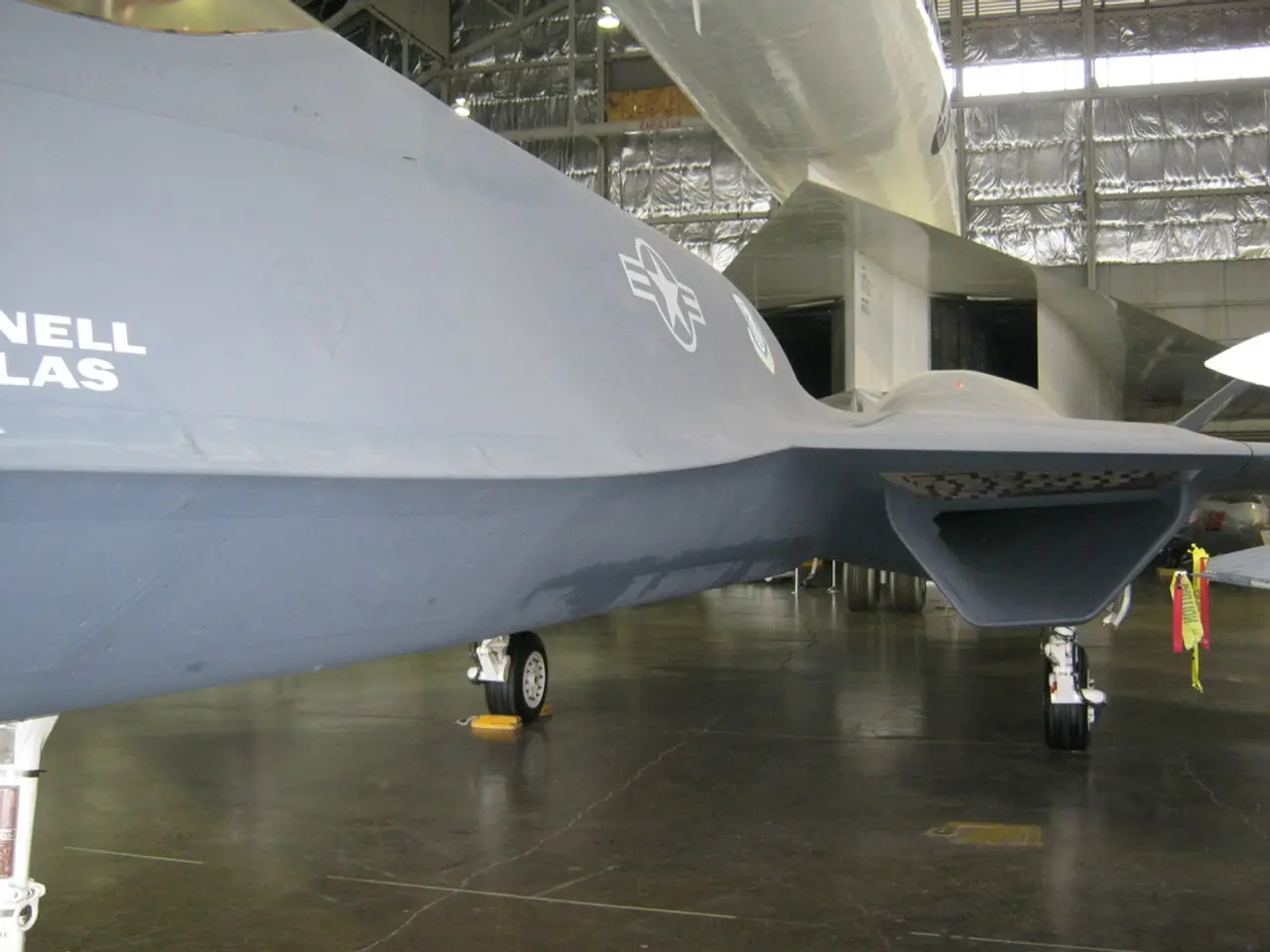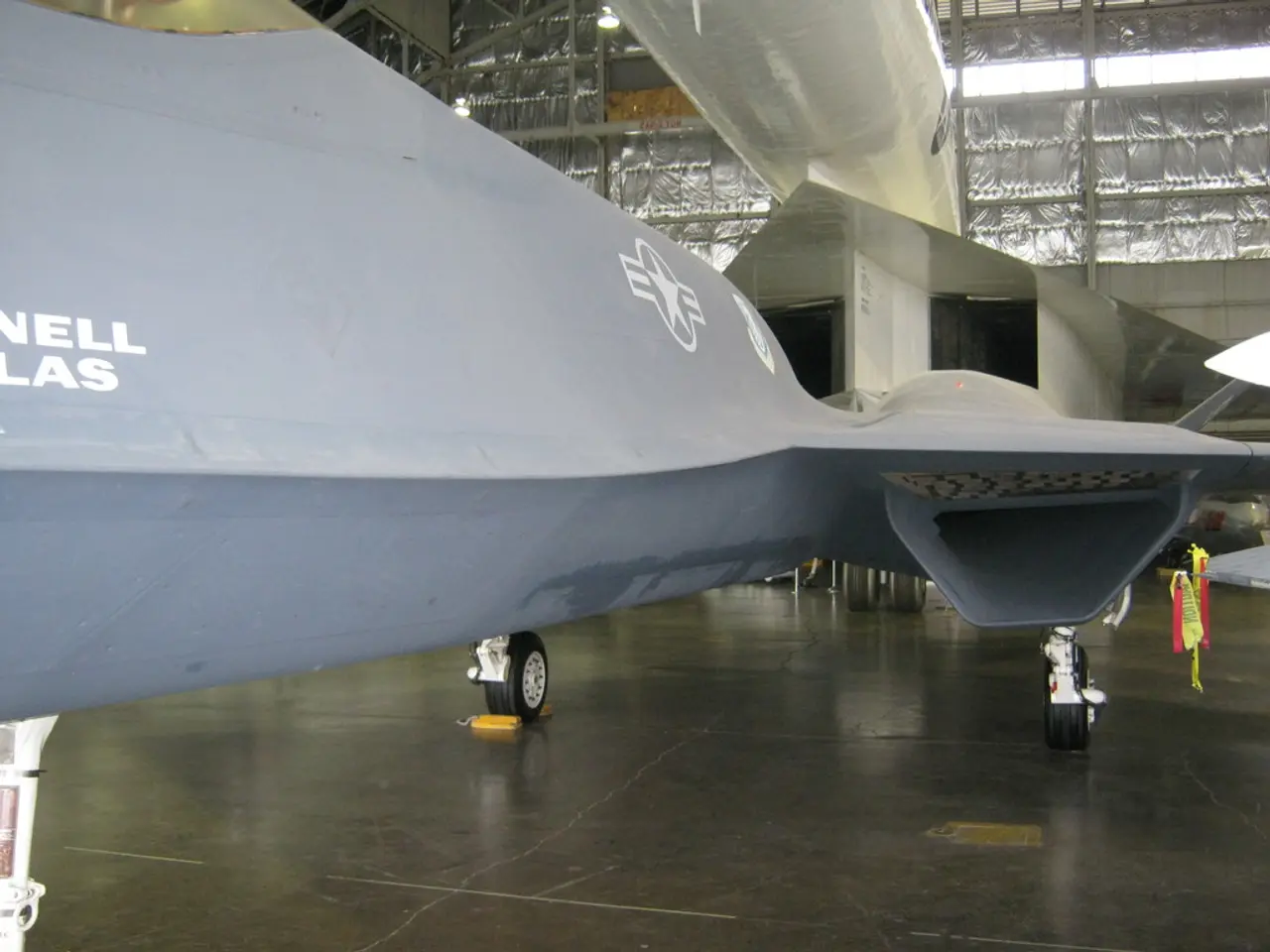Market Scare: Looming Tariff Deadline Causes Market Stir
In the world of business and finance, two significant developments are shaping the landscape. On one hand, the ongoing tariff negotiations are causing a stir, with global markets showing signs of volatility as the July 9 deadline approaches. On the other hand, AI chipmaker Groq is making strides by expanding its presence in Europe.
In the realm of tariffs, the US-China deal, announced on June 17, has set US tariffs on Chinese goods at an effective 55%, while China's tariffs remain at 10%. However, the 90-day tariff freeze on sweeping US tariffs is set to expire on July 9, creating economic uncertainty. If no deals are finalized by the deadline, tariffs could sharply increase on billions of dollars of imports from multiple countries, escalating trade tensions.
This uncertainty is already causing a ripple effect in the global markets. On July 7, U.S. markets opened lower amid investor jitters about potential tariff hikes. The S&P 500 fell about 0.3%, the Dow Jones dropped 96 points (~0.2%), and the Nasdaq declined nearly 0.5%, driven by tech and consumer discretionary stocks.
Tech stocks and global manufacturers, such as Apple, Tesla, and Caterpillar, have been hit hardest due to their exposure to international supply chains. There was a spike in trading volume for ETFs tracking major indices like the SPDR S&P 500 ETF Trust (SPY), reflecting heightened investor activity and concern.
Historical precedents indicate tariffs have triggered market downturns before. For instance, in April 2025, when Trump first unveiled aggressive tariffs, the S&P 500 lost 10% in a week before rebounding on a temporary pause.
Meanwhile, in the world of AI, Groq, a lesser-known player compared to Nvidia, is making waves by opening its first data center in Europe in partnership with Equinix. The data center, located in Helsinki, Finland, is expected to be operational by the end of the week. Groq's CEO anticipates traffic to start shortly thereafter.
Groq's technology, designed for inference, is a promising alternative to Nvidia's dominant training chips. One of its key advantages is that it does not require expensive and limited-supply support components like Nvidia chips, making it a more cost-effective solution.
As the tariff situation unfolds, other US companies are also investing in Europe due to rising demand for AI. For example, Vista Energy, focused in Latin America, beat earnings expectations in Q1 with $0.86 per share after a 38% revenue rise. Forecasts suggest $1.04 per share in Q2, with results due on Friday.
In the airline sector, Delta Air Lines is set to post a second-quarter earnings update on Thursday. Cost management is a key thing to watch in Delta's near term. Meanwhile, ConAgra Brands will release Q4 and full-year results on the same day, with analysts expecting a 3% decline in revenue and a 12.7% drop in earnings to $2.33 per share.
Charles Schwab's Chief Investment Strategist Liz Ann Sonders noted that retail favorites or meme stocks have been swinging investment toward higher risk. This shift in investor behaviour could have implications for various sectors in the coming weeks.
As the tariff situation continues to evolve, markets remain vulnerable to sharp corrections if the situation deteriorates further. In the meantime, companies like Groq are pushing forward with expansion plans, contributing to the ongoing development of the AI industry.
In the volatile global markets, the potential tariff hikes are causing investors to show caution, with US markets opening lower on July 7 and tech and consumer discretionary stocks experiencing significant declines. This economic uncertainty, caused by the rapidly approaching tariff deadline on July 9, has the potential to trigger market downturns, as demonstrated with a 10% drop in the S&P 500 in April 2025 when similar tariffs were announced.
In a contrasting development, AI chipmaker Groq is expanding its presence in Europe, opening a data center in Helsinki, Finland, and anticipating traffic to start shortly thereafter. This investment in Europe, driven by rising demand for AI, marks a significant stride for the company and the ongoing development of the AI industry.
As companies like Groq push forward with growth strategies, other US firms such as Vista Energy are also seizing opportunities in Europe, reporting positive earnings due to a 38% revenue rise in Q1. Businesses that are not directly impacted by tariffs are identifying emerging markets and investing in areas with high growth potential, such as AI, to secure their financial futures.




